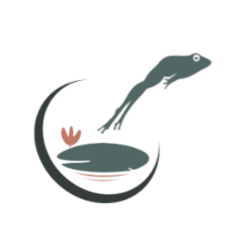Be a Mental Health Ally!
Approximately 1 in 5 American adults experience mental heal related issues every year. Essentially, even if you don’t live with a mental illness, it’s likely someone close to you does. While things have been improving, there is still a great deal of misinformation, silence, and stigma around mental illness. It can be hard to know the right thing to say or do when you notice someone struggling with their mental health. That’s why we wrote this blog. Our goal is to create safe spaces to discuss and shed light on the truth about mental health. Below you will find 5 things you can start doing today to be a better mental health ally!
1.Pay attention to those around you, like actually pay attention. It is no secret that mental health issues are prevalent- as high as . Recently, we have made great strides in decreasing the stigma around mental health and seeking out help. However, we are nowhere close to where we need or should be. Unfortunately, it’s more than likely you know someone who is struggling with their mental health in silence. Don’t be afraid to point out that someone has seemed “off” and ask “How are you?” and actively listen to their answer.
2. Educate yourself.
There seems to be more and more that we have to know these days. When someone is struggling with their mental health, the last thing they want to do is feeling as though they have to educate you on the basics of their mental illness. While you don’t want too overgeneralize or make assumptions, making the effort to educate yourself shows that you care and creates a safe environment for the other person to share and seek support. A great place to check for mental health information is NAMI of the Lehigh Valley.
3. Be aware of your language. You may have seen our recent Instagram post which talked about how mental illness creeps into language, regardless of whether we intent to or not. For instance, saying this like “crazy”, “nuts”, or “basket case” can be very offensive and may make people feel less comfortable and safe. However, it doesn’t even have to be that overt. You may hear people make remarks such as “I’m totally OCD and can’t cook in a dirty kitchen.”. Using these terms casually may suggest that those issues are so common that they are not serious, which can create and reinforce a barrier to seeking help. For more information read this article that discusses the differences between 1. No distress, problem or disorder 2. Mental distress 3. Mental health problem 4. Mental disorder / illness.
4. Try to offer only what you can deliver and do so consistently. One of the best ways support someone is to offer a listening ear. If you can think back to a time you had a problem and wanted to vent, you may recall that there are times when the other person does not do a great job of listening and tries to problem solve or says things like “Oh, don’t worry about it. You’ll be fine. Cheer up.”. While these statements are well intended, most often, we just need someone to listen. Instead of using the above statements try paraphrasing, reflecting emotions, and asking clarifying questions. As an Ally, don’t feel the need to “fix” the other person.
5. Understand that no matter how much you learn about mental health, there is no step by step process to be the “perfect” ally. Every person and mental illness is unique which means the care and support they need changes witch each person and situation. Instead of assuming, telling someone to just get over it, and trying to problem solve, ask them how you can help.

